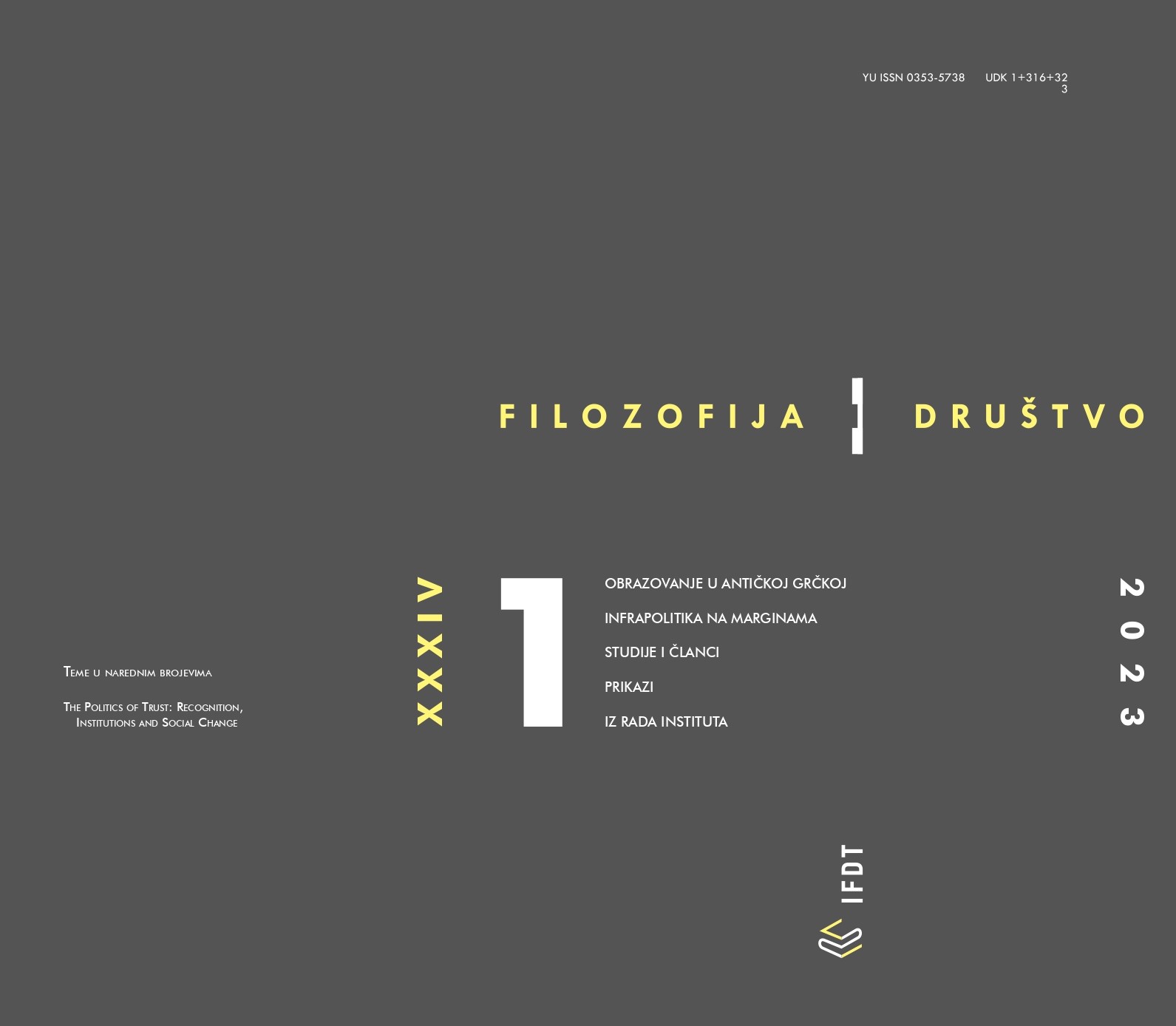THE CITIZENS’ LIFELONG LEARNING IN PLATO’S LAWS
THE CITIZENS’ LIFELONG LEARNING IN PLATO’S LAWS
Author(s): Aikaterini LefkaSubject(s): Politics / Political Sciences, Politics, Philosophy, Social Sciences, Education, Law, Constitution, Jurisprudence, History of Law, History of Philosophy, Ethics / Practical Philosophy, Ancient Philosphy
Published by: Institut za filozofiju i društvenu teoriju
Keywords: Plato; Laws; ideal city; ethics; politics; citizen; good life; lifelong learning; religious; ethical and civic education; virtues; body-soul-intellect relations; gods
Summary/Abstract: In the Laws, Plato presents an educational program for all members of the projected city of Magnesia, which concerns not only various kinds of specific knowledge, but also, and more importantly, the application of ethical and political virtues, in view of becoming excellent citizens and achieving a “good life” in the long run, at the private and public level. These objectives are realized in many ways, as for example, by the people’s participating in the legislation and the city’s administration, by receiving a common fundamental education, including lessons of reading, writing, mathematics and astronomy; practicing sports; playing music; singing; dancing and also by taking an active role in religious festivals. The population is then divided in three groups, according to age, and they form “choirs” dedicated to different divinities (the children to the Muses, the young people to Apollo, the elderly to Dionysus). Thus, we may deduce that Plato was one of the ancient Greek philosophers who supported the concept of “lifelong learning,” expanded through various kinds of knowledge, skills and qualities. In my paper I examine the objectives, different contents of Plato’s pedagogical project destined to all the Magnetes, the various methods he proposed to use in order to arrive at its attainment, as well as the eventual reasons for these choices, related to his philosophical theories. I conclude by making a comparison with the notion of “lifelong learning” as we understand it today.
Journal: Filozofija i društvo
- Issue Year: 34/2023
- Issue No: 1
- Page Range: 5-31
- Page Count: 27
- Language: English

